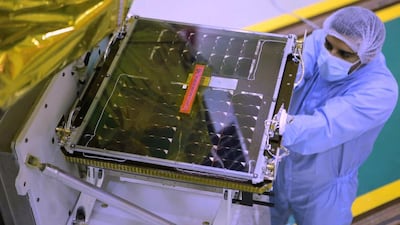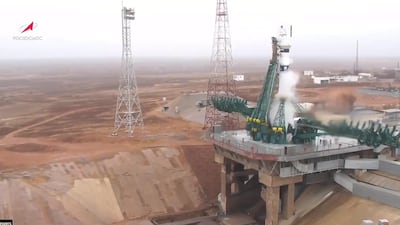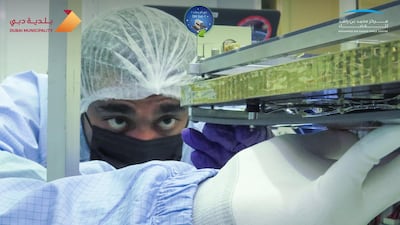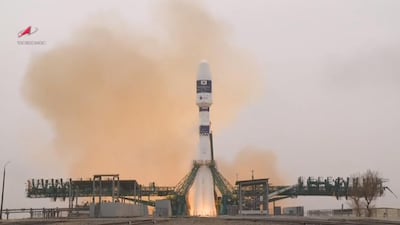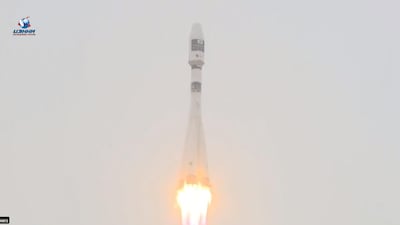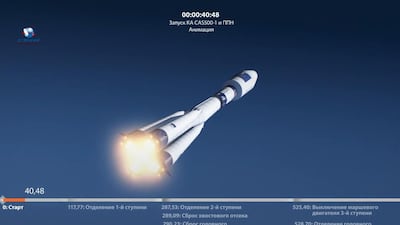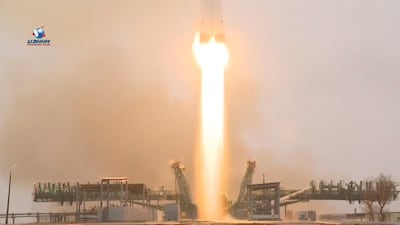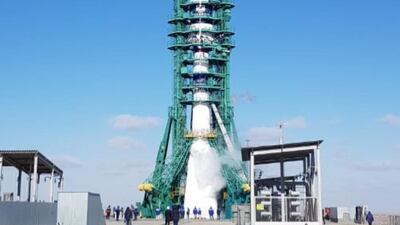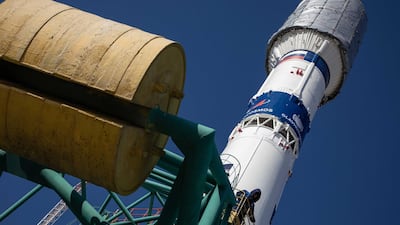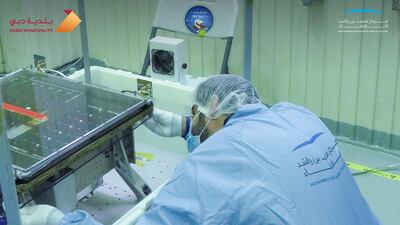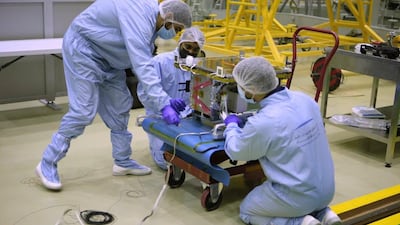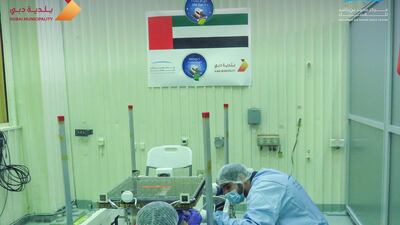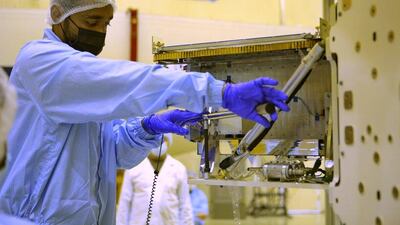The launch of four Arab satellites – including the UAE's environment nanosat – has been delayed again as the Russian space agency rechecks the rocket that will carry the payloads into space.
The initial launch date on Saturday was postponed until Sunday, after a voltage spike in the Fregat upper stage of the Soyuz-2.1a rocket.
It was then put back to Monday.
The Soyuz-2.1a is due to carry 38 payloads from 18 countries into space, from the Baikonur Cosmodrome in Kazakhstan.
These include the UAE satellite, two from Saudi Arabia and one from Tunisia. The main payload is South Korea’s CAS500-1 spacecraft.
Dmitry Rogozin, director general of Russian space agency Roscosmos, said technicians will retest the Fregat upper stage and, if the results are satisfactory, the launch would take place on March 22.
"At the Baikonur Cosmodrome on March 20, a meeting of the commission was held, during which the results of tests of the Soyuz-2.1a space rocket were considered, after a technical malfunction that morning," Roscosmos said in a statement.
“After hearing the reports of the work supervisors, the members of the commission decided to launch on the morning of Monday, March 22.”
The launch scheduled for Saturday was called off about 35 minutes before lift-off, which was scheduled for 10.07am, Gulf Standard Time.
A 24-hour postponement was announced at first, but then the Monday launch date was given.
The UAE is launching a nanometric environment satellite, called DMSat-1. It will help Dubai Municipality and the Mohammed bin Rashid Space Centre (MBRSC) create an air quality map of the UAE, as it measures air pollutant sources across the Emirates.
“The satellite will have scientific instruments on board that will detect air pollution, monitor greenhouse gases – mainly methane, carbon dioxide – and the concentration of water in the air,” said Adnan Al Rais, DMSat-1 programme director at MBRSC.
Saudi Arabia's Shaheen Sat satellite will be used for photography and maritime tracking. University students designed the second satellite for educational use.
Tunisia's first satellite, Challenge One, was meant to be launched on the country's Independence Day on March 20. It will focus on the Internet of Things and is a precursor to a constellation of 30 other satellites.
The Arab Space Co-operation Group was founded in 2019.
More than 11 Arab countries across the Middle East and North African region are part of the organisation.
Since its formation, Arab countries have either revived their space programmes or have started new ones.
Saudi Arabia has increased its space programme funding and is eyeing a mission to Mars and the Moon.
UAE's mission to Mars – in pictures























